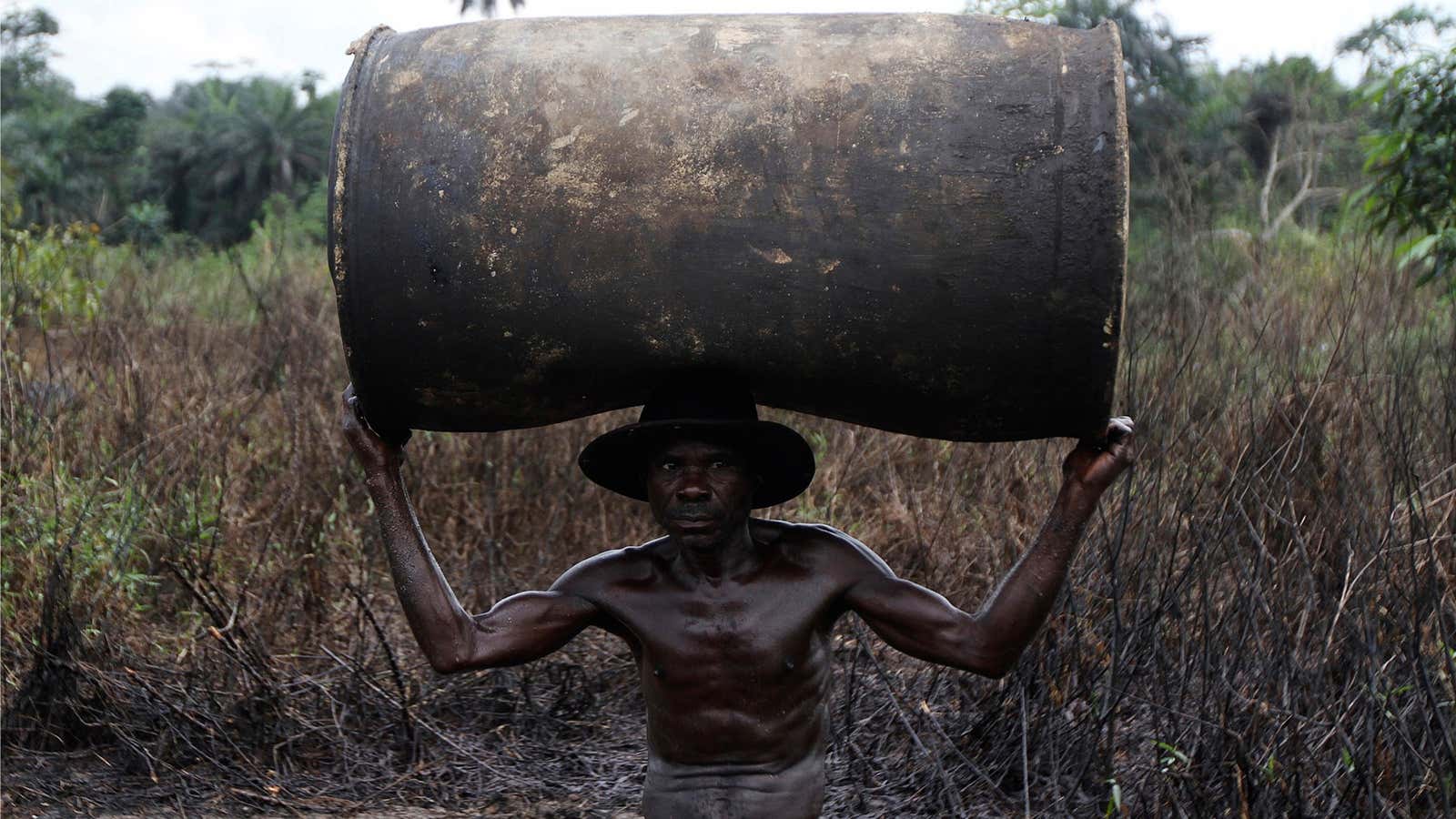If you’re going to steal oil, you’ll probably want to start by booking a flight to Nigeria, where you can dig into the country’s budding oil-theft culture.
Nigeria, the world’s 13th largest producer, exports over 2 million barrels of oil every day. But the country also forfeits mind-boggling amounts of its precious crude; an estimated 100,000 barrels of oil are stolen every day, according to a report released on Thursday (pdf).
For years, thieves have been tapping into the country’s pipelines and intercepting oil shipments in and around the Niger Delta, where they then transfer the oil onto barges and boats. Some of that oil is refined and sold locally, while the rest (as much as 90%) is carried abroad on bigger vessels. Illegal oil snatching costs the African nation as much as $8 billion a year, and Nigeria is ill-equipped to stop it. “Nigeria offers a strong enabling environment for the large-scale theft of crude oil,” the report says (p. 9). The combination of rampant corruption and fraud, poor governance, and a severe lack of transparency in the oil industry has turned the country’s oil reserves into a cesspool of violence and theft.
It isn’t clear who’s stealing the oil, and the greater international community has been slow to help Nigeria solve the problem. “At present oil theft is a species of organized crime that is almost totally off the international community’s radar,” the report says (p. 10). What’s clearer are the various methods used to siphon the oil, broken down as follows by the report:
- In “small-scale pilfering and illegal local refining,” thieves (generally locals organized into groups) “hacksaw, puncture or install illegal taps and siphons on pipelines” along with other oil infrastructure (p. 17). As the dubbing suggests, it accounts for only the smallest oil thefts, as most of it involves make-shift tools. Very little, if any, of the oil stolen in this manner makes it out of the country—virtually all of it is refined and sold locally.
- There’s also “large-scale illegal bunkering in the field,” in which intricate networks of criminals steal oil not only from the Niger Delta’s swamps and shallow waters, but also ones on land, underground and even in deep water. They use taps to ply oil from pipes and hoses and transport them onto barges capable of storing as much as 18,500 barrels of oil each. After reaching the coast, those barges transfer the oil onto tankers with capacities ranging from 31,000 barrels to 62,000 barrels of oil. These tankers are then used to store and transport oil locally, while still larger vessels are called upon for international deliveries. Virtually all of the oil transfers happen in the dark, at night.
- Finally, there’s the oil snatching that happens at the country’s export terminals. That’s the most complicated and difficult form of theft to track, and the most difficult to pull off, given the heightened control at these outposts. It’s so difficult, in fact, that some analysts doubt that this form of theft is even possible. Other analysts believe thieves are stealing the oil undetected by manipulating meters and falsifying shipping documents. If theft at export terminals were included in the national oil theft estimate, some analysts say the total barrels stolen could double to 200,000.
Rising oil prices and high production levels could be egging on oil theft, notes the report: “Amounts stolen probably do correlate to spikes in production and global oil prices,” (p. 44). The more oil prices creep up, the craftier oil thieves are bound to get.
